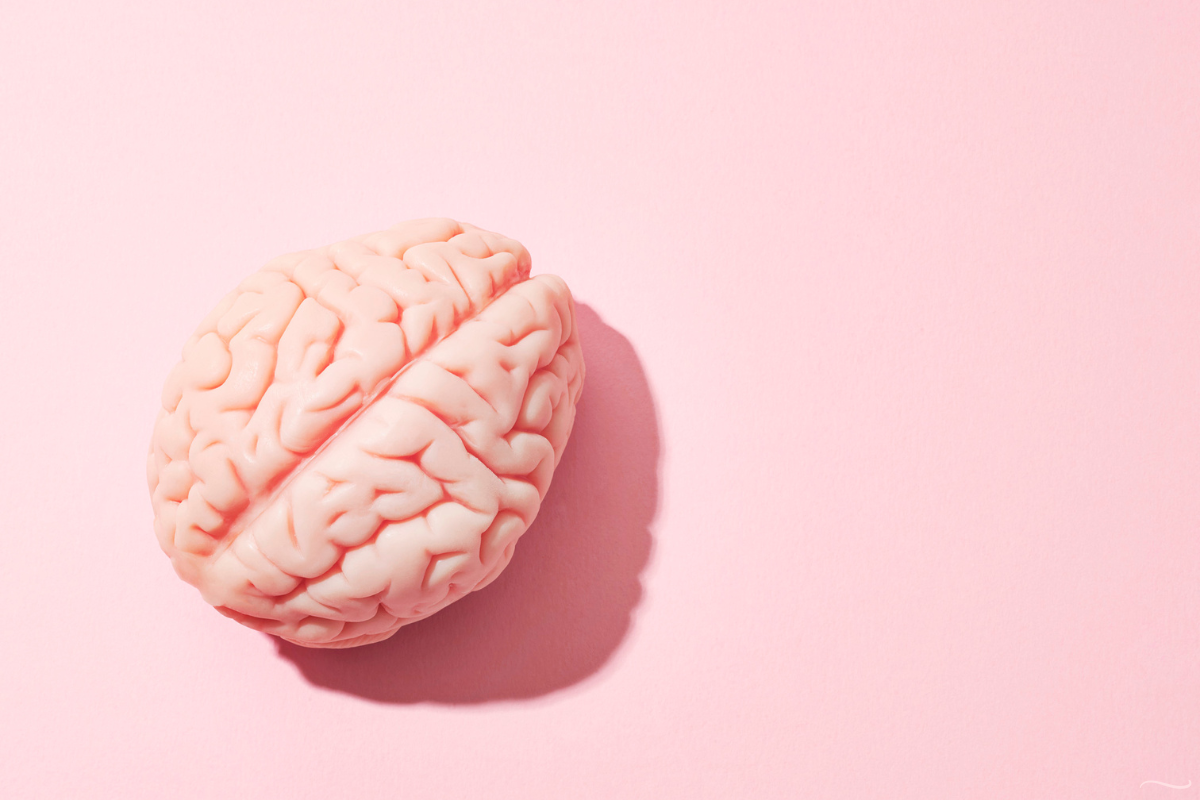The menopause is an inevitable and natural stage in a woman’s life, marked by the cessation of menstrual cycles and significant hormonal changes. However, its effects go far beyond physical symptoms such as hot flushes and night sweats. An often overlooked but crucial aspect is the impact of the menopause on the brain. Indeed, the menopause is a neurologically active state in which many aspects of the brain are subject to changes. These changes can affect memory, cognition and mood, making this a particularly delicate period for women.
Understanding these effects is important for two reasons. Firstly, it enables women and healthcare professionals to anticipate and manage symptoms more effectively. Secondly, it highlights the need for specific research into women’s brain health, an area that has historically been under-studied. By raising public awareness of these issues, we can promote better care and improved quality of life for menopausal women.
The first signs of brain changes
Research conducted by Dr Lisa Mosconi has revealed that the menopause is a key period for detecting the first signs of Alzheimer’s disease. In fact, the pre-menopause is a time when the first indicators of this disease can appear in women’s brains. These indicators include the presence of amyloid plaques and neurofibrillary tangles, which are characteristic markers of Alzheimer’s disease.
How can the first signs of Alzheimer’s disease be detected?
Early detection of these signs is crucial because it allows us to identify women at risk before clinical symptoms appear. This opens the way to preventive interventions that can slow or even prevent the progression of the disease. Advanced brain imaging techniques, such as positron emission tomography (PET) and MRI, play an essential role in this early detection. Thanks to these technologies, it is possible to visualise metabolic and structural changes in the brain, offering a detailed view of the early alterations associated with Alzheimer’s disease.
Importance of the pre-menopause in early detection
The pre-menopause, often perceived as a harmless period of transition, is in fact a critical time for women’s brain health. It is during this phase that hormonal fluctuations begin to have a significant influence on the brain.Oestrogen levels fluctuate unpredictably, which can lead to metabolic changes in the brain.
According to Dr Mosconi, this is precisely when the first signs of Alzheimer’s disease can be detected. Studies show that pre-menopausal women with a family history of Alzheimer’s disease or genetic risk factors often show more marked brain changes. These women may show an accumulation of amyloid plaques and tau protein tangles well before the onset of cognitive symptoms.
Recognition of the importance of the pre-menopause is enabling doctors to implement more effective monitoring and prevention strategies. By identifying women at risk at an early stage, it is possible to introduce interventions such as lifestyle modifications, targeted hormone therapies and specific preventive treatments that can help protect brain health.
In addition, the pre-menopause is a period when women are often more receptive to prevention messages and health advice. They are generally still healthy and active, which makes preventive interventions more effective. It is therefore crucial to raise awareness among women and healthcare professionals of the importance of this period for the early detection and prevention of neurodegenerative diseases.
Changes in the brain from the thirties to the menopause
Neurological changes in women begin well before the onset of the menopause. From their thirties onwards, the first hormonal fluctuations begin to influence the brain. During this decade, women may experience subtle but significant symptoms, such as mood disorders and variations in energy. These changes, often attributed to stress or lifestyle, are in fact the precursor signs of hormonal changes underway.
Neurological changes in women in their thirties, forties and beyond
As we move into our forties, these fluctuations become more pronounced. The perimenopause marks the start of significant changes in oestrogen and progesterone levels. This phase is characterised by irregular menstrual cycles and symptoms such as hot flushes, night sweats and sleep disturbances. These symptoms are not just physical; they also have a profound effect on the brain.
During the perimenopause, the brain undergoes significant metabolic changes. Brain imaging studies show that levels of glucose in the brain, an essential source of energy, begin to fall. This reduction in cerebral metabolism can lead to a feeling of mental fog and cognitive fatigue. In addition, hormonal variations cause mood swings and depressive symptoms, affecting overall quality of life.
What are the effects of the menopause on memory and cognition?
The hormonal fluctuations that accompany the perimenopause and menopause have direct effects on memory and cognition. Many women report difficulty concentrating, frequent forgetfulness and a general feeling of brain fog. These symptoms can be particularly worrying as they are often interpreted as early signs of cognitive decline or dementia.
However, these cognitive changes are generally temporary and reversible. They are mainly due to fluctuations in levels of oestrogen, a key hormone in supporting cognitive function. Oestrogen helps regulate blood flow to the brain, maintain synaptic connections and protect neurons from damage. When oestrogen levels fall, these functions can be temporarily disrupted, leading to cognitive difficulties.
It is also important to note that not all women experience these changes in the same way. Genetic factors, family history and lifestyle all play a part in how a woman experiences the menopause. For example, women with a history of depression or other mood disorders may be more likely to experience intense cognitive symptoms during this transition.
Preventive interventions can help mitigate these cognitive effects. Simple lifestyle changes, such as regular exercise, a healthy diet and stress management techniques, can have a significant positive impact on brain health. In addition, certain hormone therapies can help stabilise oestrogen levels and support cognitive function during the menopause.
What impact do hormonal changes have on the brain?
The role of hormones in the brain
Hormones play a crucial role in brain function, influencing a multitude of neurological processes. Oestrogens, for example, are involved in regulating the brain’s energy metabolism, protecting neurons from damage and maintaining synaptic connections. They also help to modulate mood and cognitive functions such as memory and learning.
Progesterone and testosterone also have important effects on the brain. Progesterone, for example, has neuroprotective and anti-inflammatory properties, helping to reduce oxidative stress and protect neurons. Testosterone, although present in lower quantities in women, also contributes to cognitive and emotional health.
The hypothalamic-pituitary-gonadal (HHG)axis is the main pathway through which these hormones exert their influence on the brain. This axis regulates the production and release of sex hormones by the sex glands (ovaries in women) in response to signals from the brain. In this way, sex hormones and the brain are closely interconnected, forming a dynamic system that constantly adjusts to physiological and environmental needs.
Specificity of hormonal changes during the menopause
The menopause is characterised by fluctuations and a gradual decrease in oestrogen and progesterone levels. These hormonal changes have a significant impact on the brain. During the perimenopause, oestrogen levels become erratic, with sudden peaks and troughs. This hormonal instability can lead to neurological symptoms such as hot flushes, sleep disorders, mood swings and cognitive problems.
Brain imaging studies have shown that these hormonal fluctuations can reduce metabolic activity in the brain. For example, levels of cerebral glucose, which is the brain’s main source of energy, decrease during this period, leading to reduced cognitive function and a feeling of mental fogginess. In addition, hormonal changes can disrupt neural networks, affecting brain connectivity and exacerbating symptoms of cognitive decline.
After the menopause, oestrogen levels stabilise at a much lower level. This sustained reduction in oestrogen can lead to increased vulnerability to neurodegenerative diseases such as Alzheimer’s. Oestrogens have neuroprotective properties, and their prolonged absence can expose the brain to an increased risk of oxidative damage and inflammation.
Vasomotor symptoms, such as hot flushes and night sweats, are common manifestations of hormonal changes. These symptoms are linked to dysfunctions in hypothalamic regulation, where the brain temporarily loses its ability to correctly regulate body temperature due to hormonal fluctuations.
Sleep disturbance is another major effect of hormonal changes during the menopause. Sleep disorders, often caused by nocturnal hot flushes, can lead to cognitive fatigue and reduced alertness, affecting women’s overall quality of life.
How can you look after your brain during the menopause?
Physical exercise and brain health
Physical exercise is essential for maintaining good brain health, particularly during the menopause. Studies show that regular physical activity can improve neuroplasticity, increase blood flow to the brain and stimulate the production of neurotrophic factors such as BDNF (brain-derived neurotrophic factor). These effects encourage the formation of new synaptic connections and protect neurons against degeneration. Remember to consume sufficient protein to promote muscle repair and provide you with the energy you need during your sports sessions.
Aerobic exercise, such as brisk walking, running or swimming, is particularly beneficial for cognitive function. They improve cerebral metabolism and can reduce the symptoms of brain fog often experienced during the menopause. In addition,resistance training helps to increase muscle mass and bone density, thus helping to prevent osteoporosis, a common condition in post-menopausal women.
A diet rich in fibre and antioxidants
A balanced diet rich in fibre and antioxidants plays a crucial role in brain health. Fibre, found in fruit, vegetables, legumes and whole grains, helps maintain a stable metabolism and prevent glucose spikes that can affect cognitive function. Fibre also promotes good intestinal health, which is essential because the intestinal microbiota has a direct influence on brain health.
To prevent blood sugar spikes, you can take specific dietary supplements based on chromium for glucose balance or dietary fibre: Vectipur Glycémie, Sugar Defense Kal, Oligomax Chrome nutergia, Biocyte Cr Chrome, Transit Facile Arko pharma, Belloc Constipation, etc
Antioxidants, such as vitamins C and E, beta-carotene and polyphenols, neutralise free radicals and reduce oxidative stress, which is a key factor in brain ageing and neurodegenerative diseases. Sources of antioxidants include berries, nuts, green leafy vegetables and green tea. A diet rich in these nutrients can help protect the brain from damage and maintain optimal cognitive function.
Reduced stress and cortisol
Reducing stress is essential for maintaining healthy levels of the stress hormone cortisol, which can have harmful effects on the brain when present in excess. Chronic stress leads to continuous production of cortisol, which can interfere with neurogenesis and damage brain structures, particularly the hippocampus, a key region for memory and learning.
Many natural food supplements available from online pharmacies help to reduce stress levels and have a positive effect on cortisol levels: Rhodiole Superdiet, Soria Natural Stressor, Cardiocalm, Neurodoron Weleda, etc.
Stress management techniques such as meditation, yoga and deep breathing have been shown to reduce cortisol levels. These practices promote a state of relaxation, improve sleep quality and strengthen emotional resilience. Reducing cortisol helps to protect the brain against the deleterious effects of stress and to support mental and cognitive health.
Sources
- Systematic review and meta-analysis of the effects of menopausal hormone therapy on cognition
Frontiers in Endocrinology March 2024 - Sex-specific associations of serum cortisol with brain biomarkers of Alzheimer’s risk
March 2024





